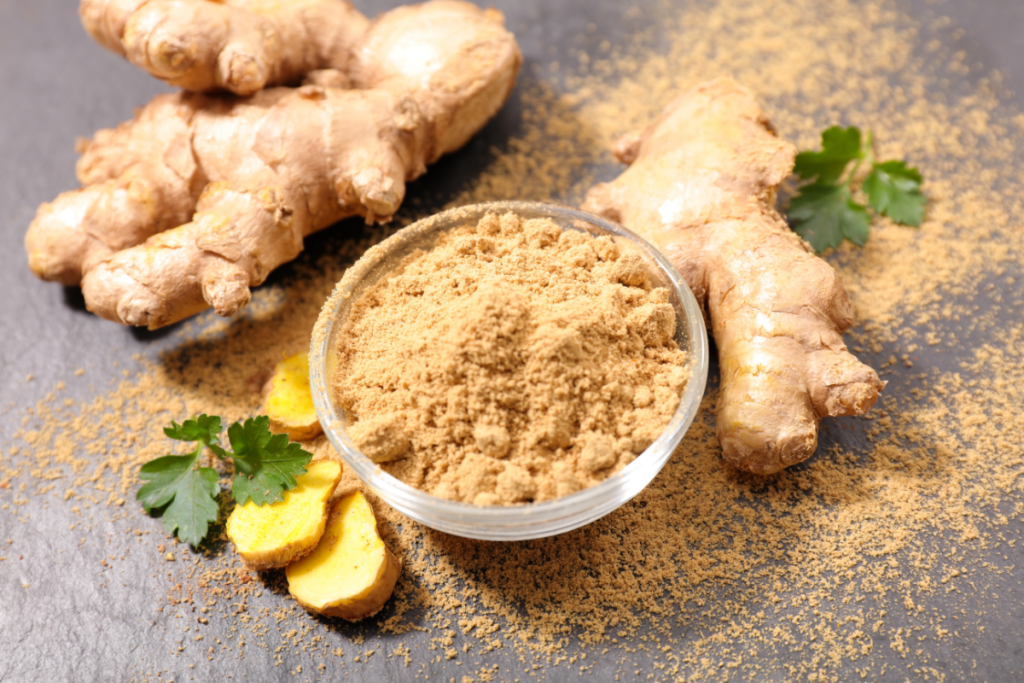Is ginger good for your health

Ginger has been used as a seasoning, medicine, and dietary staple in the Indian subcontinent for thousands of years. In fact, it is one of the oldest spices still in use today. It is a pungent root found primarily in warm climates. The rhizomes are usually planted and harvested in the spring for its best flavor. The health benefits of Ginger are many, but how does it impact our health? Let’s delve deeper into this popular food and find out if it’s good for you or not.
How does Ginger help in reducing inflammation?
Ginger is a potent anti-inflammatory. It can be used to reduce pain and inflammation caused by conditions such as arthritis, migraines, and menstrual cramps. It can also help reduce pain and stiffness in pre-menstrual syndrome and manage nausea and vomiting caused by conditions such as cancer chemotherapy and motion disorders.

It’s Good for Heart Health
Ginger can significantly reduce your blood pressure and improve blood flow to your heart. It increases blood flow and reduces blood pressure by dilating blood vessels in your heart, lungs, and brain. This can reduce the risk of cardiovascular diseases such as stroke and heart attack.
It Reduces Pain and Inflammation
Ginger is one of the most widely used herbs for reducing pain and inflammation. It has potent anti-inflammatory properties that make it effective in treating joint and muscle pain, as well as reducing inflammation caused by conditions such as rheumatoid arthritis and menstrual cramps. Ginger can be consumed by itself or used in spicy foods such as curries or soups. It can also be blended into healthy beverages or used in poultice form. Ginger is also very effective at reducing nausea caused by pregnancy and chemotherapy. It can be taken by mouth and consumed in a beverage or added to foods such as Indian, Thai, or Chinese cuisine.
6 other benefits of Ginger You Should Know Too!
Ginger has powerful antiviral and antibacterial properties that make it effective against a wide range of diseases. It can be used to treat bacterial and viral infections, including colds and flu, bacterial infections such as UTIs, and even certain cancers. It can also reduce symptoms of diabetes and improve blood sugar levels by increasing the amount of insulin that your body releases. It can also help reduce blood pressure and increase blood flow. Ginger is also a powerful antioxidant that can reduce inflammation caused by oxidative stress and increase longevity. It can even help reduce the risk of certain types of cancers. Ginger can also help treat nausea, heartburn, and GERD by increasing the amount of acidity in your stomach and increasing the amount of moisture in your esophagus.
Ginger has been used as a food, medicine, and spice for thousands of years. It has many health benefits, including the ability to reduce pain and inflammation. It is also a strong antioxidant and has been used to treat nausea and improve blood sugar levels. It is an easy way to add more spice to your diet, but choose ginger that is fresh and well-ripened for the best results. Ginger is a popular ingredient used in many food and beverages. However, many people are not aware of its many benefits. In this article, we will discuss how ginger can help reduce pain and inflammation, increase longevity, and much more. Let’s begin!

Should you add ginger to your diet?
It’s important to note that while ginger has many great benefits, they come at a cost. In order to reap all of the benefits of cooking with ginger, you’ll need to eat fresh ginger, rather than purchasing pre-packaged ginger ale or ginger candy. When consuming fresh ginger, you’ll want to make sure to consume just the outer layer of the ginger root. This outer layer is the ‘root,’ and is where all of the strongest and most beneficial compounds are found. You’ll also want to be careful when consuming too much ginger. If you find yourself feeling a bit too zingy, you can reduce your intake a bit by consuming ginger in small amounts. There are several easy ways to incorporate fresh ginger into your diet. You can grate fresh ginger and add it to your stir-fry, or add it to your smoothies. You can also add it to a pot of soup or stew.
What you need to know before you start cooking with ginger
Ginger is a very spicy ingredient, so it’s important to add it to your cooking in moderation. If you overdo it, you’ll end up with a sour stomach. – It may be tempting to add ginger to any recipe, but make sure to only include fresh ginger. The ginger root found in the grocery store is likely not fresh. – The ginger you find at the grocery store is likely not fresh. Instead, you’ll want to look for ‘ginger root,’ which is the actual root of the plant. – Ginger has a high amount of pungent volatile compounds, which means that it will lose these when it’s exposed to air. – It’s important to store fresh ginger in a cool, dry place. If you don’t keep it in a place that is cool and dry, it will start to rot.






